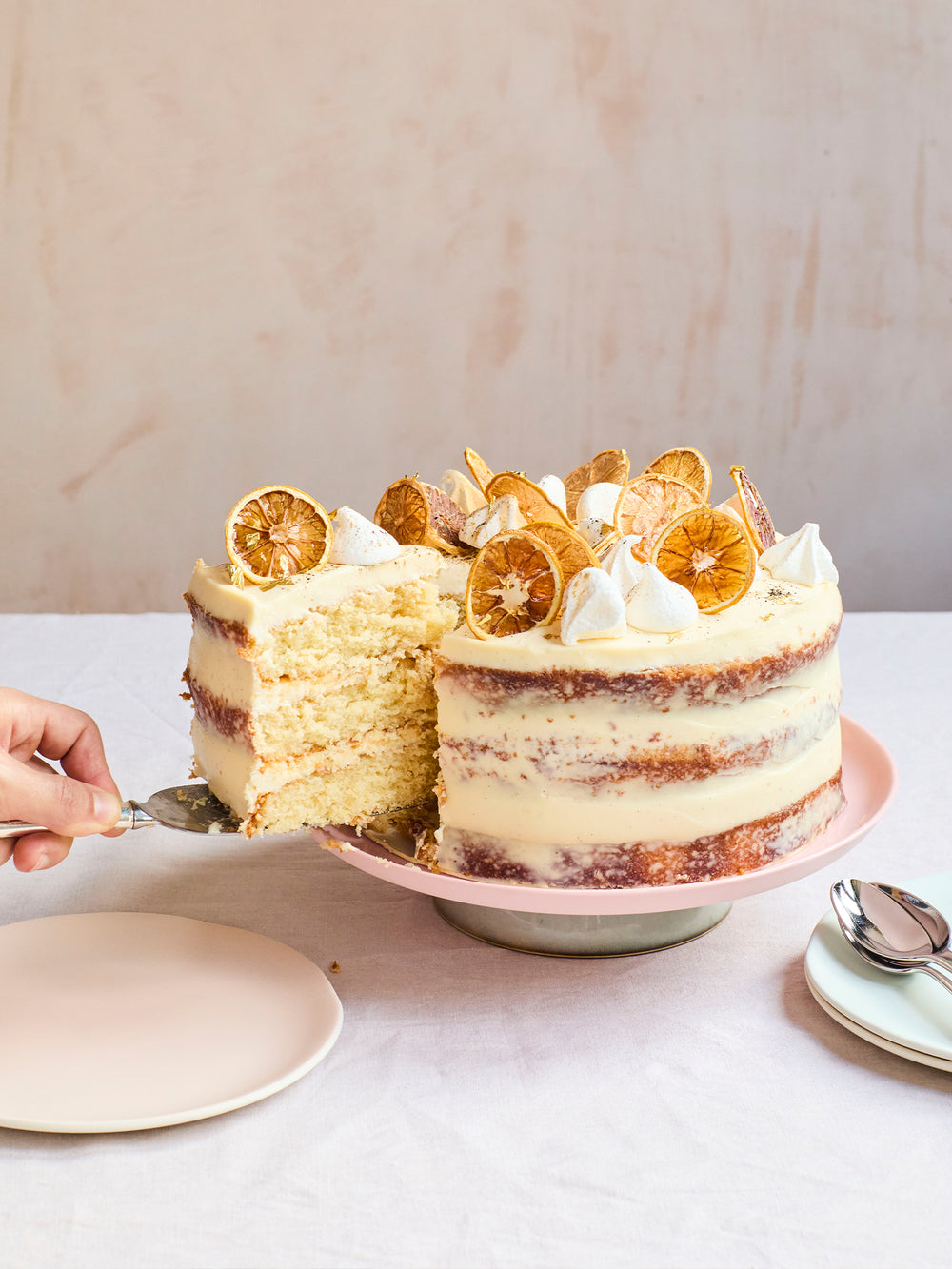Popular searches
Main menu
recipes menu
recipes
locations menu
locations
shop menu
shop
search
Popular searches
We've never been shy about our love for lemons. How to maximise the lemony-ness of a lemon cake, however, was where the ‘lemon-everything’ truly came to life: from a triple layered, lemon-syrup-soaked sponge, to fragrant burnt lemon powder and delicate dehydrated lemon pieces. This cake truly embraces our favourite citrus in every single one of its many forms. That being said, we recognise this cake as a weekend project - one to attempt when you have plenty of time, a cause for celebration, and many mouths to feed!
| Lemon sponge: | |
| 285g | unsalted butter, cut into 4 chunks |
| 380g | caster sugar |
| 380g | plain flour, or cake flour if you can get it |
| 5 1⁄4 tsp | baking powder (24g) |
| 1⁄2 tsp | salt |
| 7 | large eggs (400g) |
| 150g | vegetable oil, or other neutral oil like sunflower |
| 150ml | whole milk |
| 1 tbsp | vanilla bean paste |
| 1 tbsp | lemon zest (from 2 large lemons) |
| LEMON SYRUP | |
| 150ml | lemon juice (from 3-4 lemons) |
| 115g | caster sugar |
| LABNEH MASCARPONE ICING | |
| 500g | mascarpone |
| 335g | cream cheese |
| 165g | labneh, store-bought or homemade |
| 2 tsp | vanilla bean paste |
| 2 tsp | lemon juice |
| 350g | icing sugar |
| FOR ASSEMBLY | |
| 200g | lemon marmalade, or regular marmalade mixed with a tablespoon of lemon juice |
| meringue kisses, store-bought or homemade | |
| dehydrated lemons (optional) | |
| burnt lemon powder (optional) | |
| MERINGUE KISSES (MAKES OVER 100 KISSES) | |
| 120g | egg whites |
| 1⁄2 tsp | cream of tartar |
| 240g | caster sugar |
| 3⁄4 tsp | cornflour |
| 1/8 tsp | baking powder |
| DEHYDRATED LEMON SLICES | |
| 2 | lemons, sliced into thin 1⁄4 cm rounds, pips removed |
| BURNT LEMON POWDER | |
| 2 | lemons |


Tag @ottolenghi on Instagram and hashtag it #ottolenghi so we can see all the deliciousness!
Follow @Ottolenghi on Instagram and tag your images with #Ottolenghicookoftheweek
Be the first to add a cooking note